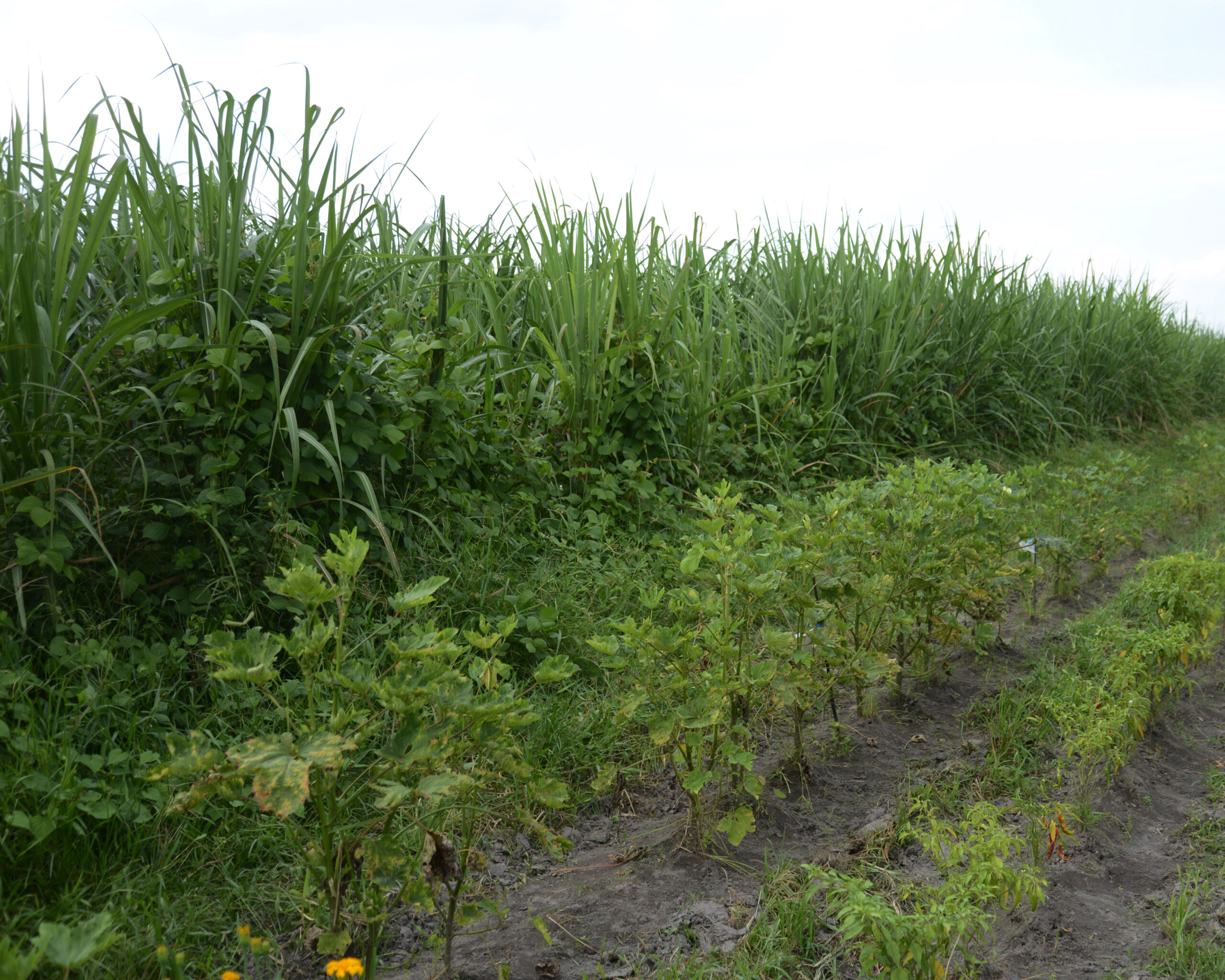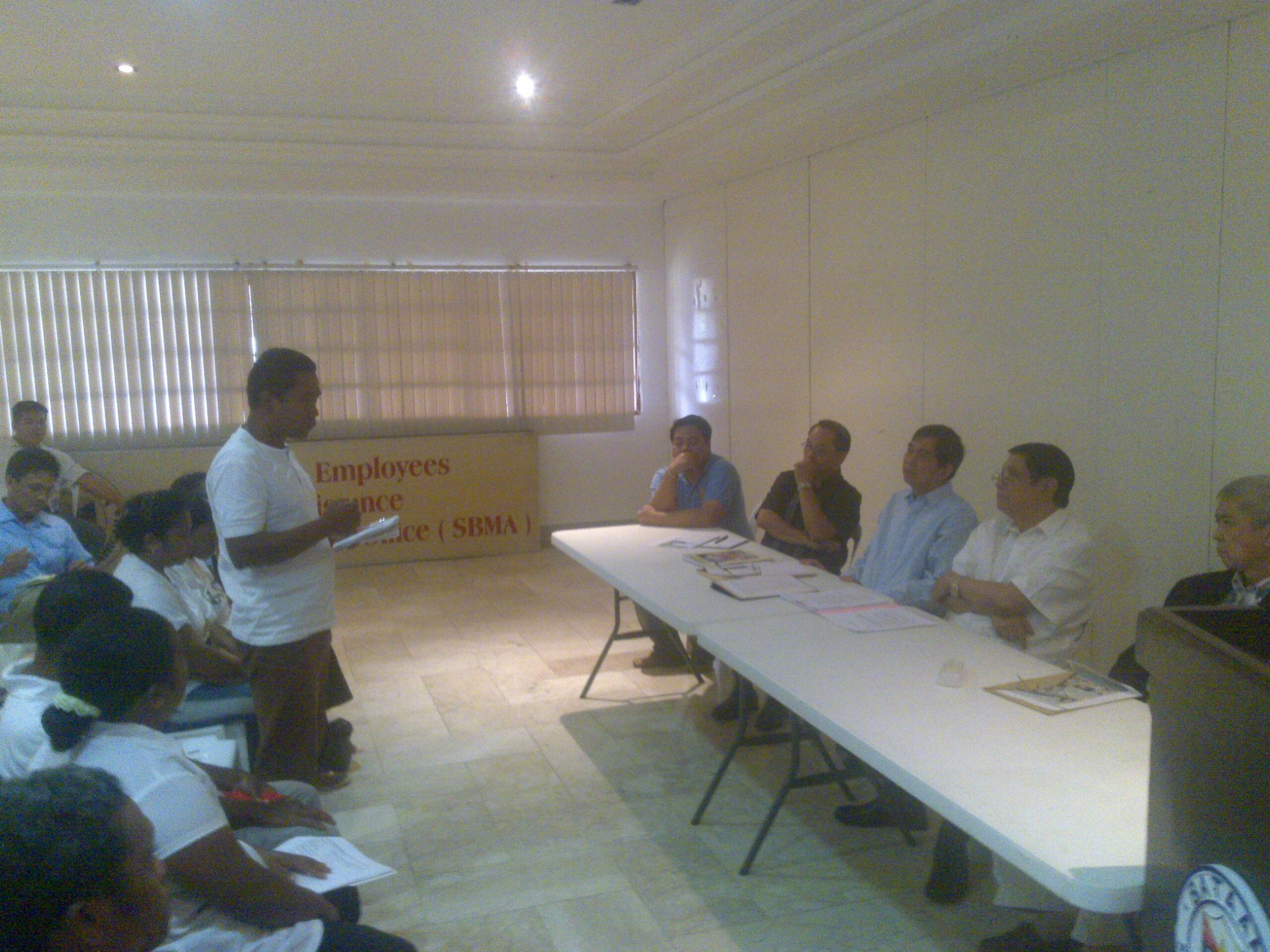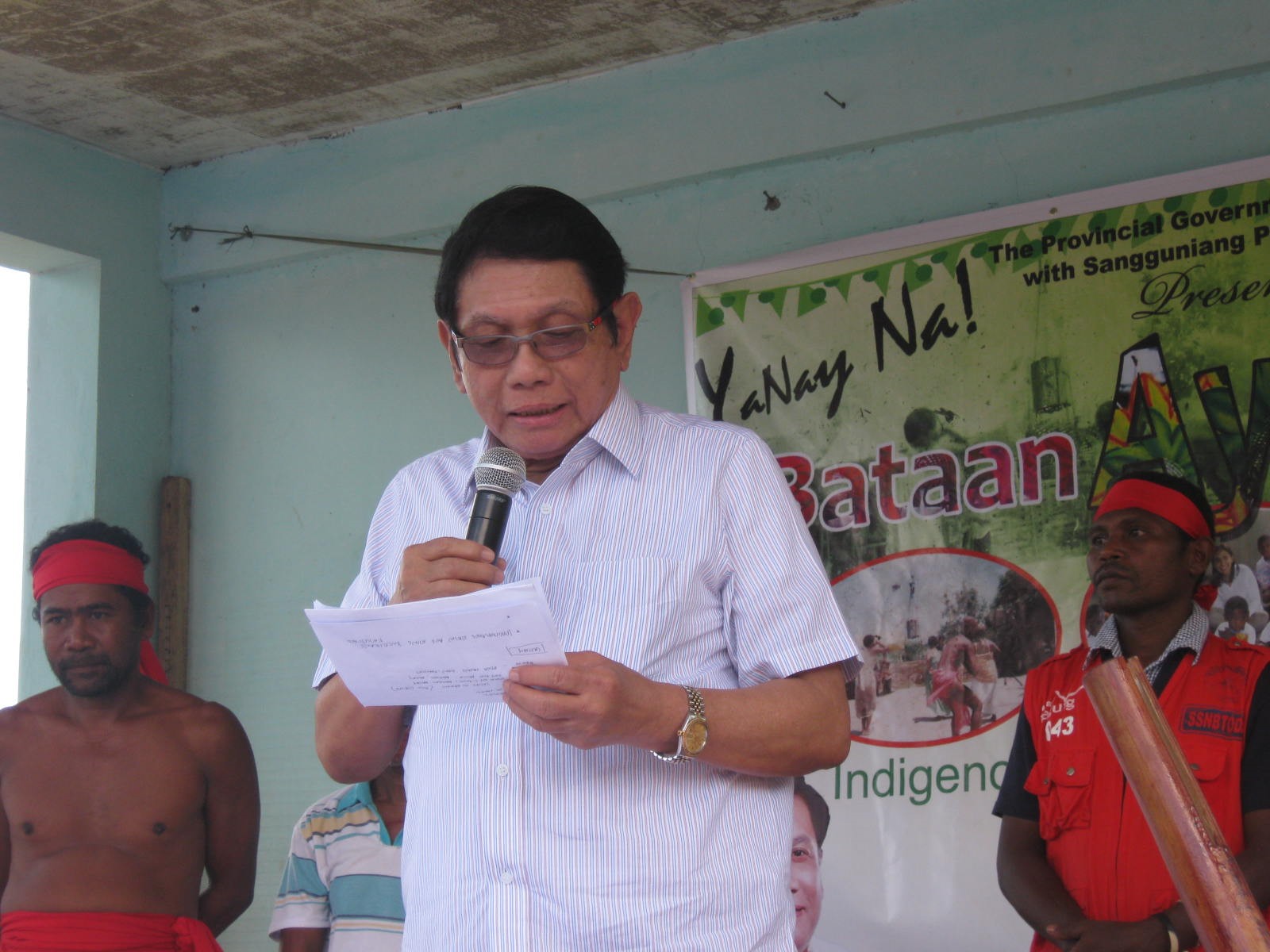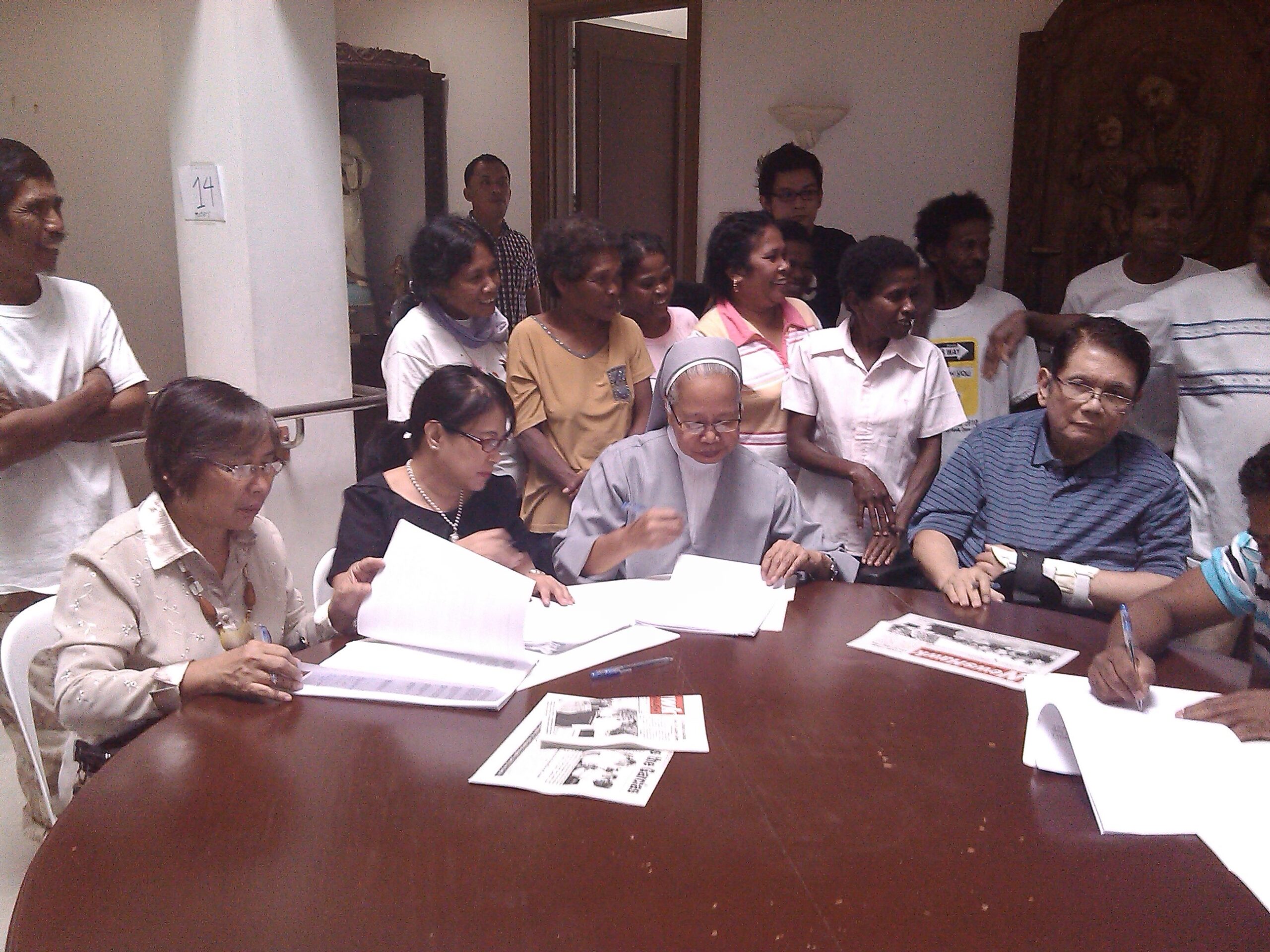(originally published: 2021/01/27)

Located in the western part of Central Luzon, Bataan has a total land area of 137,296 hectares of which 46,200 hectares or 34 percent is considered IP ancestral land. Bataan is a province occupying the Bataan Peninsula, a rocky extension of the Zambales Mountain Ranges. The Bataan Peninsula separates Manila Bay from the West Philippine Sea.
The Indigenous Peoples found in this province are called Aeta Magbukon. There are 18 tribal communities found in the mountains of Bataan. These tribes have lived in these lands for centuries. Their livelihood and way of life are closely connected to the forest and the mountains hence it is vital for them formalize ownership of these lands.

The legal right of IPs to reclaim ancestral domains is anchored on the Indigenous People’s Rights Act (IPRA or RA 8371), a landmark legislation which recognizes and guarantees the rights of indigenous peoples to their ancestral domains, to self-governance and empowerment, social justice, human rights and cultural integrity.

Ancestral domains include trees, pastures, and bodies of water, burial and hunting grounds, places of worship, agricultural and residential lands and the natural resources and minerals that are found within the lands. Ancestral domains are a community property, belonging to all generations of the tribe and cannot be sold, disposed or destroyed.
The IPs have occupied these lands since time immemorial but their land ownership is not recognized because they have no titles. IPRA gives the IPs an opportunity to formalize their claim in their ancestral domains through a CADT (Certificate of Ancestral Domain Title). With a CADT, IPs have land tenure security and can inhabit, develop and till their tribal lands without fear of land grabbing or ejection and can establish their tribes and sustain their way of life in their ancestral domains.
Processing of ancestral domain claims are difficult because of the legal and operational challenges in processing and acquiring the title: resistance of local government units to cooperate rooted in its desire to keep the land and its resources for its own interests, the voluminous documentary requirements, the difficulty of mapping the terrain and the boundaries coupled with the IP’s lack of expertise. Moreover, the NCIP (National Commission on Indigenous Peoples), the government agency responsible for the implementation of IPRA, has limited resources. It relies on partnerships with LGUs and NGOs to pursue its mandate.

For IPs to have land tenure security, their claims on their ancestral domains must be recognized by the government through the issuance of a Certificate of Ancestral Domain Claim (CADC) issued by the Department of Environment and Natural Resources. Thereafter, the IPs must work for the issuance of a CADT from the DENR after approval by the NCIP. This process requires the submission of documentary evidences consolidated in a “Claim Book”.
Each CADT application requires time, expertise and a large amount of money. Several surveys are required: genealogical, geographical and a community census. Funds are also needed for the preparation leading to the survey (information dissemination, meetings, discussions and preliminary research) and after the survey for the collation of data, validation and publication of results, and consolidation into a Claim Book.
The entire process is technical and rigorous and is beyond the means and expertise of the tribe. Unfortunately, the NCIP has limited resources and provides only half of the total funds needed. It supplies the geodetic engineers who will map the terrain and the boundaries of the ancestral lands plus the tools, equipment and transportation of these engineers. The rest (conduct of genealogical survey, community census and the validation, collation and printing of results plus food of the geodetic engineers) are shouldered by the IP organization.
The Magbukon Aetas of Bataan formed a federation called the Panlalawigang Asosasyon ng mga Katutubong Ayta ng Bataan or PANABAT. Elected President of PANABAT is Puun Danilo Salonga, a long time partner of PDI in rural development work through the IP organization NASAKA-K (Nagkakaisang Samahan ng mga Katutubong Ayta sa Kinaragan). PDI committed to assist PANABAT in all the steps of its CADT application.
To raise funds, PANABAT sought the help of the Provincial Government of Bataan. A series of dialogues were conducted between the Provincial Government of Bataan, NGOs helping the IPs and PANABAT


Last October 2011, PANABAT, with assistance from PDI, organized an Indigenous People’s Day in Limay, Bataan to celebrate IP month. Eighteen (18) IP communities participated. The Mayor of Limay, Bataan hosted the event and the Provincial Governor was the Guest of Honor. Governor Tet Garcia committed to help the Aetas of Bataan in reclaiming their ancestral domains. To this end, the Governor pledged P10 million by way of grant to the IPs for the delineation and titling of the Bataan ancestral land and domains.
On January 31, 2013, a Memorandum of Agreement was signed between the Provincial Government of Bataan and the NCIP for the benefit of PANABAT with the participation of various NGOs who are assisting the IPs of Bataan: PDI, PANLIPI (an NGO providing legal assistance to IPs) and the Indigenous People’s Apostolate (Paulinian nuns who are engaged in development work among the Magbukon Aetas).

the moa sets the following terms:
. Ancestral domain claims will cover a total area of 21,000 hectares in four (4) locations in Bataan to benefit ten (10) tribal communities:
- 3,500 hectares in Sitio Parapal, Barangay Mabiga and Bamban in Hermosa and Barangay Pag Asa in Orani.
- 4,500 hectares for Barangay Bangkal in Abucay, Barangay Palili in Samal and Barangay Dangcol in Balanga City.
- 7,500 hectares in Barangay Tubo-tubo, Payangan and Bayan-bayanan in Dinalupihan
- 5,500 hectares in Sitio Matalangao and Sitio Ulingan in Bagac
- Based on the budget submitted by NCIP, P4,228,992.30 is set aside as project cost for surveying, delineation and titling of the ancestral domains in Bataan
- NCIP shall implement the project from social preparation up to registration and awarding of the CADT
- NCIP shall commence work on the project within 10 days from receipt of Notice to Proceed and the grant of 30% of the project cost.
- Payment of the balance shall be based on progress billings by NCIP to the Provincial Government of Bataan which shall be monitored, verified and concurred in jointly by the NGOs and PANABAT.
The balance of P5.7 million from the P10 million allocated by Governor Tet to the project will be utilized to support the needs of the Magbukon Aetas such as livelihood programs, health requirements, education and reforestation of ancestral domains.
